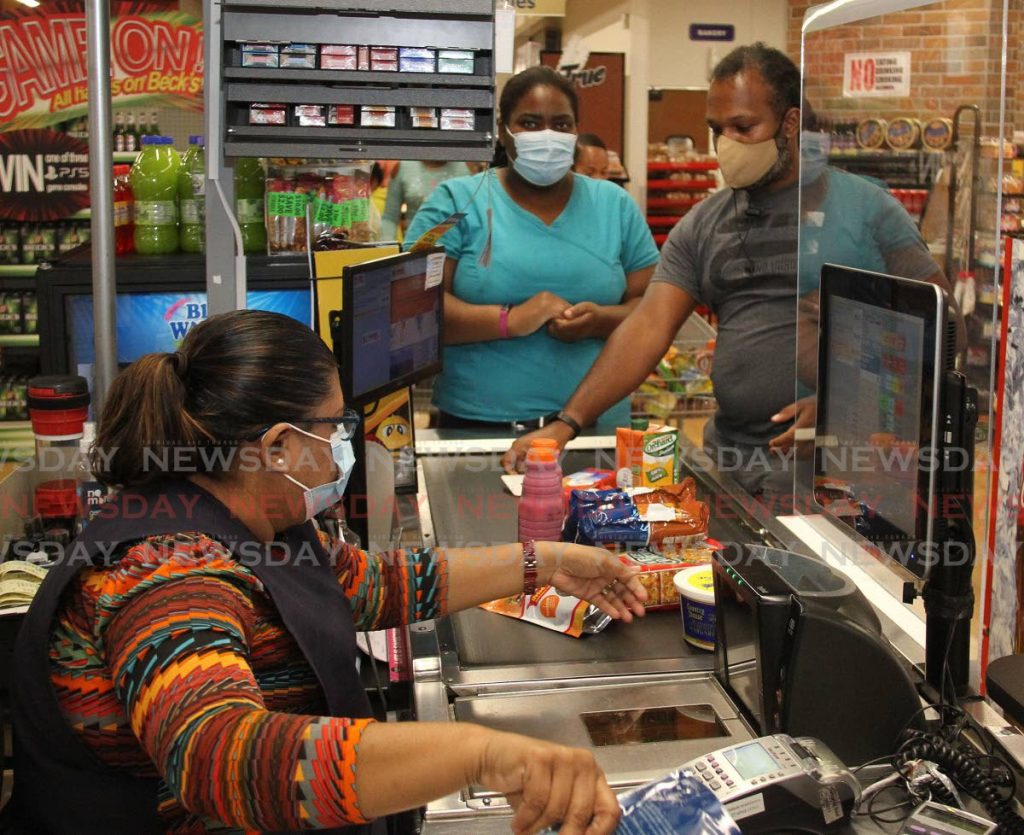Food price increases minimal in Trinidad and Tobago despite supply challenges

Despite the challenges brought on by covid19, food price increases have been minimal, panellists at a webinar, including Agriculture Minister Clarence Rambharat, said on Monday.
The speakers addressing the topic – a food price challenge – said prices remained relatively steady because consumers cannot afford to pay more for food.
“We continue to acknowledge that we cannot put goods out that consumers cannot afford, simply put, because these goods need to be moving all the time," Supermarkets Association president Rajiv Diptee said.
“So working with suppliers we try to keep those items and where possible, provide substitutes to meet the pocket of the consumer.”
Dr Sharon Hutchinson, lecturer at UWI's Department of Agricultural Economics, said there have been price increases citing statistics for the past four years.
She said prices in TT increased by 10.4 per cent between 2016 to 2018, one per cent from 2018 to 2019, and 3.1 per from 2019 to 2020.
“The global food price increase between 2019 and 2020 was 3.4 per cent. So we are coming in just below the global average,” Hutchinson said.
But there have been difficulties in maintaining a fair price for customers, Diptee said. He added that while facilities have been put in place to ensure important staples were provided, the global supply and demand for food has affected relationships between suppliers and importers. This has led to some brands being replaced with local ones, or disappearing from grocery shelves altogether, he said. Global price increases for animal feed as led to high costs for distributors who had little choice but to raise their prices locally, including the state-owned National Flour Mills, in the past three months. Egg producers were among those in the animal food products industry that raised their prices as a result.
“We’ve seen some of our distributors struggling to continue to import their goods. What’s been happening during covid19 is that some of these foreign principals that we import from, the credit relationship that was normal is now strained because they are looking for US dollars up front," said Diptee.
“Some of our typical importers are looking for new suppliers internationally altogether, or they are trying to rearrange credit terms and relationships to suit how foreign exchange is coming to them.”
But where there are challenges there are also opportunities, the panellists said.
Diptee said supermarkets were looking to see how local agricultural production could supplement what is no longer available.
“I think there is an opportunity where we could re-engineer the demand toward the local sector. Maybe they cannot produce in the quantum that the nation would require. There needs to be a prioritisation and realignment of how companies continue to do business.”
But there are challenges to the local produce industry. One is foreign exchange, which is becoming so hard to get that it is leading to some businesses closing their doors permanently.
Hutchinson said TT needs an overarching plan, much like the one for disaster preparedness, for agriculture.
“We have a number of policies in place, but they are not under an umbrella right now. We have plans in different ministries that are going to support agriculture, but it is piecemeal. So what we need is something that would put everything under one umbrella for the long haul.
“Whether we have a pandemic or not, we need to have a long-term vision and what kind of support structures are needed when things don’t work well.”
But Rambharat said increasing production would not matter if there is no market for local produce.
“If we double production and we don’t have a place for that increase in production, the farmers are going to suffer in the long term. We have to increase the market before we increase production. We have to increase the market, stabilise the supplies, get the right varieties and so on.”


Comments
"Food price increases minimal in Trinidad and Tobago despite supply challenges"